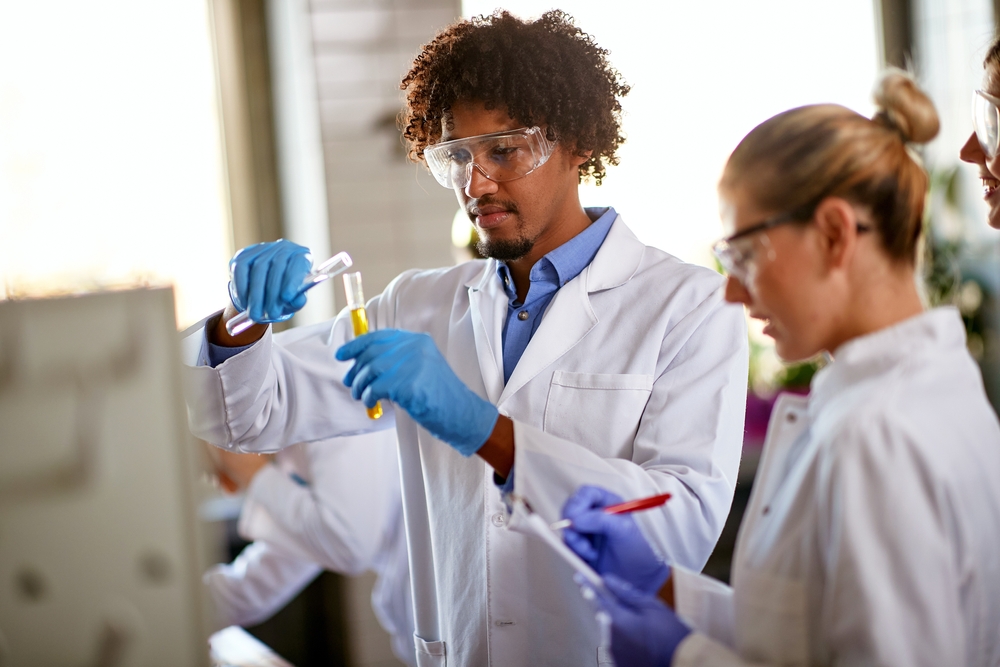Introduction
Engineering is the root of everything, whether its for creating the materials in medical devices or producing life-saving drugs on a global scale. Whatever the niche might be, two engineering disciplines stand out: chemical and pharmaceutical. Although they share overlapping concepts, their applications and objectives differ in significant ways. Understanding the distinction between them is key to appreciating how engineers improve pharmaceutical production and drive the development of safer, more efficient healthcare solutions.
Chemical engineers design and optimize processes that transform raw materials into valuable products, while pharmaceutical engineers focus specifically on developing and manufacturing drugs and medical formulations. Together, these professionals bridge the gap between science and industry, turning laboratory innovations into tangible healthcare products that improve millions of lives every day.
What Is Chemical Engineering?
Chemical engineering is a broad discipline that combines chemistry, physics, biology, and mathematics to design and operate large-scale manufacturing processes. Chemical engineers work in diverse industries such as energy, food, materials, and pharmaceuticals. Their main focus is to transform raw chemicals into usable products efficiently and sustainably.
In the pharmaceutical industry, chemical engineers are often involved in developing and optimizing the synthesis of active pharmaceutical ingredients (APIs). They work on improving reaction yields, scaling up processes from laboratory to industrial scale, and ensuring that production adheres to safety and environmental standards.
A chemical engineer’s skill set includes:
Process design and optimization: Creating systems that efficiently convert raw materials into finished products.
Thermodynamics and kinetics: Understanding how reactions behave under various conditions to ensure consistent results.
Safety and environmental control: Designing processes that minimize waste and reduce hazardous byproducts.
Equipment design: Developing reactors, distillation columns, and other critical machinery used in manufacturing.
In short, chemical engineers lay the foundation for large-scale production, ensuring that complex chemical reactions are controlled, scalable, and economically viable.
What Is Pharmaceutical Engineering?
Pharmaceutical engineering, on the other hand, is a specialized branch of chemical engineering that focuses exclusively on the design, development, and manufacturing of drugs and therapeutic products. It merges engineering principles with biological and pharmaceutical sciences to ensure that medications are safe, effective, and reproducible.
Pharmaceutical engineers are involved in:
Drug formulation: Determining how a drug should be delivered to the body (tablet, injection, inhaler, etc.) for optimal absorption.
Process development: Designing and optimizing processes for drug synthesis and formulation.
Quality assurance and control: Ensuring products meet regulatory standards for safety and efficacy.
Facility design: Building production environments that meet Good Manufacturing Practices (GMP) and other regulatory requirements.
Unlike chemical engineers who may work on diverse chemical processes, pharmaceutical engineers dedicate their expertise to the pharmaceutical and biotechnology sectors, often collaborating with pharmacists, chemists, and microbiologists. Their ultimate goal is to ensure that new therapies move seamlessly from laboratory research to large-scale production without compromising quality or safety.
Also Read: https://regic.net/physiotherapy-at-home-for-safe-recovery-after-injury-or-surgery/
Educational and Skill Differences
While both disciplines require a strong background in science and mathematics, their educational pathways often differ in focus.
Chemical Engineering Programs typically emphasize core principles such as fluid dynamics, heat transfer, reaction engineering, and process control. Graduates can work in various sectors ranging from petrochemicals to renewable energy and food processing.
Pharmaceutical Engineering Programs incorporate elements of biology, pharmacology, and biotechnology in addition to traditional chemical engineering topics. Students learn about sterile manufacturing, bioprocessing, drug delivery mechanisms, and regulatory compliance.
Professionals in both fields need strong problem-solving skills, but pharmaceutical engineers must also understand clinical considerations and patient safety. Their work is guided not just by efficiency but by strict adherence to health regulations and therapeutic outcomes.
Overlapping Roles in the Pharmaceutical Industry
Chemical and pharmaceutical engineers frequently collaborate in the pharmaceutical sector. Their skills complement each other, particularly during drug development and manufacturing.
For example:
Process Scale-Up: Chemical engineers help scale chemical synthesis reactions, ensuring that a compound created in small laboratory batches can be produced efficiently on an industrial scale. Pharmaceutical engineers then optimize the formulation, packaging, and quality control aspects.
Manufacturing Efficiency: Both types of engineers work together to minimize waste, improve energy efficiency, and ensure environmental compliance.
Technology Transfer: When moving from research and development to full-scale production, chemical engineers ensure process consistency, while pharmaceutical engineers ensure compliance with GMP and regulatory guidelines.
Automation and Data Analytics: In modern manufacturing, both roles utilize automation systems and real-time monitoring tools to enhance precision and reduce production variability.
This collaboration ensures that innovations in drug design and production can reach patients quickly, safely, and affordably.
The Role of Innovation in Both Fields
Innovation drives both chemical and pharmaceutical engineering, particularly as healthcare demands evolve.
Sustainable Manufacturing: Chemical engineers are developing green chemistry techniques to minimize waste and reduce carbon footprints. Pharmaceutical engineers are adopting continuous manufacturing processes that ensure consistent product quality and faster production times.
Biotechnology Integration: As biologics and gene therapies become more prevalent, pharmaceutical engineers are applying bioprocess engineering principles to design advanced drug delivery systems.
Automation and Artificial Intelligence: Both disciplines increasingly rely on AI for predictive modeling, process optimization, and quality assurance. AI tools help engineers identify potential issues before they occur, improving safety and efficiency.
Ultimately, innovation in both fields supports the rapid development of new treatments, ensuring that healthcare remains responsive and resilient in the face of global challenges.
Career Opportunities in Each Discipline
Both chemical and pharmaceutical engineering offer rewarding and high-demand career paths.
Chemical Engineers can work in:
- Petrochemical and energy industries
- Food and beverage production
- Environmental management
- Materials and nanotechnology
- Pharmaceutical process design
Pharmaceutical Engineers can work in:
- Drug manufacturing and process development
- Biotech companies focused on vaccines and biologics
- Quality assurance and validation
- Research and development (R&D)
- Regulatory and compliance management
While chemical engineers enjoy flexibility across multiple industries, pharmaceutical engineers have specialized expertise that makes them indispensable to the healthcare sector. As personalized medicine, biotechnology, and digital manufacturing continue to expand, demand for pharmaceutical engineers is projected to rise significantly.
Why the Distinction Matters?
Understanding the difference between chemical and pharmaceutical engineering helps organizations build more effective teams and individuals choose career paths aligned with their goals. Both roles are essential to healthcare innovation, but their functions complement each other in unique ways.
Chemical engineers provide the technical backbone that allows complex chemical reactions to occur efficiently, while pharmaceutical engineers ensure those reactions result in safe, effective medications that improve patient outcomes. This partnership fuels the constant evolution of modern healthcare, from mass-producing antibiotics to developing next-generation biologics.
Conclusion
Chemical and pharmaceutical engineering are two sides of the same innovative coin. Both disciplines share a deep commitment to improving lives through science and technology, yet each brings distinct expertise to the table. Chemical engineers focus on designing efficient, scalable processes, while pharmaceutical engineers translate those processes into safe, high-quality medicines ready for patient use.
Together, they form the foundation of a healthcare system that thrives on precision, safety, and progress. Whether it’s optimizing chemical reactions or perfecting drug delivery systems, these engineers are instrumental in turning scientific breakthroughs into real-world solutions.
If you’re inspired by the role these professionals play in advancing healthcare and want to explore opportunities in this field, join our healthcare talent community and be part of the innovation shaping the future of medicine.



